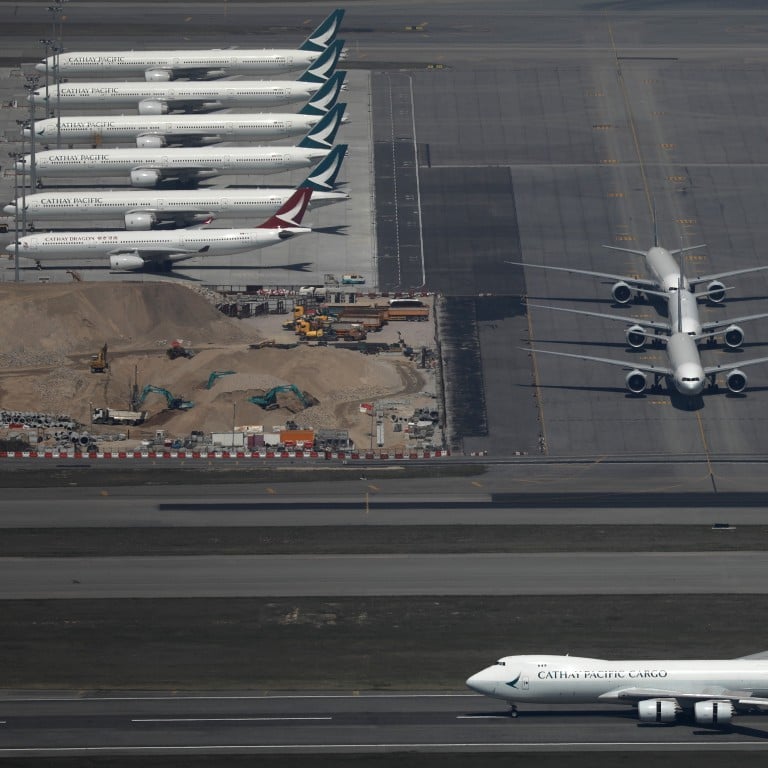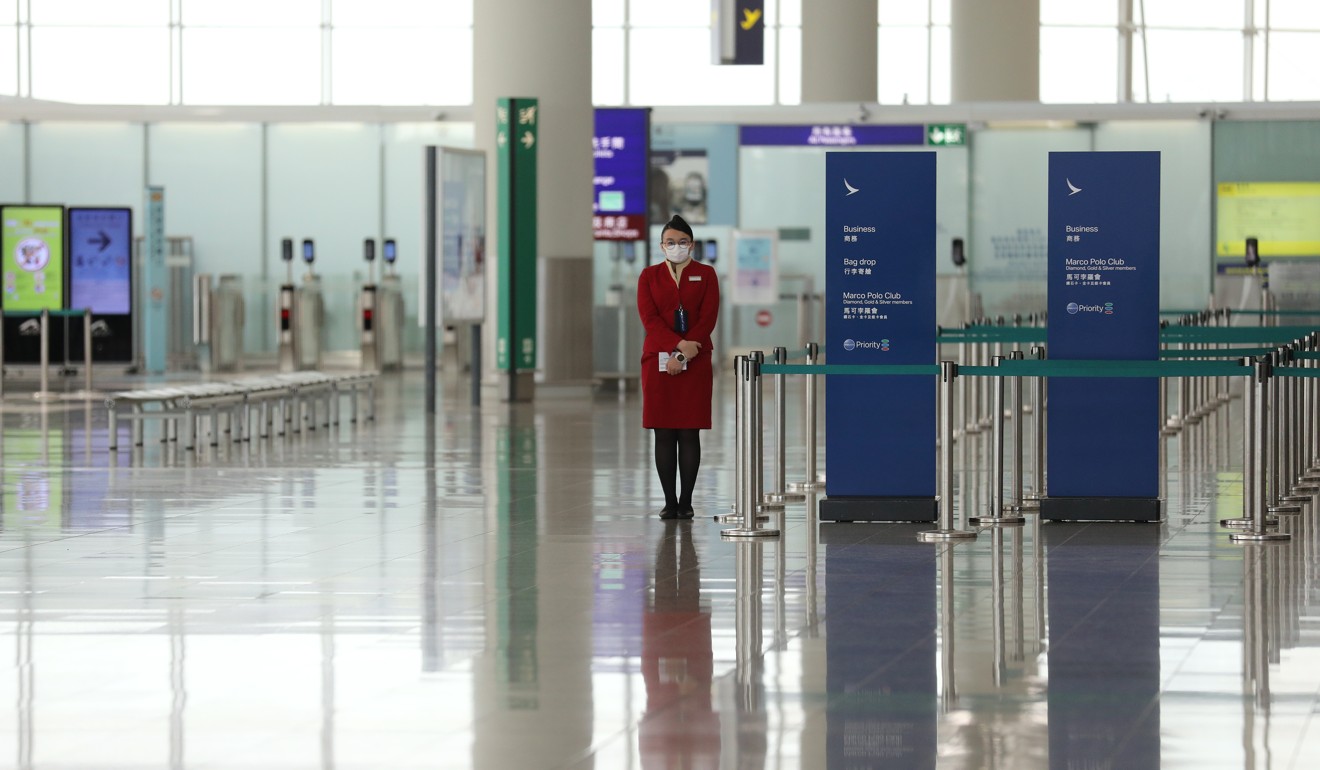
Exclusive | Cathay Pacific parks half its fleet and slashes nearly three-quarters of March flights as coronavirus epidemic hammers global aviation industry
- Hong Kong’s flagship airline keeping 120 planes out of the sky at any one time
- Bosses say move is in response to market demand as fear of travelling increases
Cathay Pacific Group has 120 planes sitting on the tarmac at any given time, accounting for about half of its fleet, and has scrapped more than three-quarters of its weekly flights in March.
Sources familiar with the situation said the number of planes left on the ground was likely to rise as Cathay warned of further cuts in flight schedules.
“We are continuously assessing our fleet and aircraft deployment in order to best align capacity with market demand,” a spokeswoman for the airline said, declining to address the number of parked planes.
Last week, Cathay said 75 per cent of staff, or 25,000 employees of the group, would take unpaid leave.
The airline’s flying schedules for March show a decline of around 75 per cent, according to a study by the Post.

Originally, around 1,470 flights per week were scheduled in March for Cathay Pacific and Cathay Dragon. That number has now been cut by more than 1,120.
During the Sars crisis of 2003, Cathay reduced its passenger schedule by 45 per cent and parked 22 aircraft out of a fleet of 80.
The crisis at Cathay, the worst hit airline outside mainland China, is being replicated globally as major airlines implement emergency cost saving to cutting flights across the board.
American Airlines, the world’s biggest carrier, saw its stock fall 21.6 per cent over five days. IAG, the parent company of British Airways, tumbled 17 per cent.
“An outbreak is the kind of macro impact that is really hard for an airline to plan around,” said Bocom International analyst Luya You, who cited Cathay’s efforts during the city’s civil unrest to prop up its revenue with transit passengers who could bypass Hong Kong.
“During an outbreak, all of it collapses because people no matter the price point they are no longer willing to fly.”
You said there was not much airlines such as Cathay could do to balance the situation, apart from shedding costs to limit losses.
Measures adopted by other airlines also include storing, selling planes or delaying deliveries of new jets, putting staff on unpaid leave or cutting, freezing jobs plus seeking cuts in discretionary spending and non-critical projects, and putting the squeeze on suppliers.
Singapore Airlines CEO Goh Choon Phong has gone further, taking a 15 per cent pay cut from March 1.
On Friday, United Airlines widened the axing of Asia flights to South Korea, Japan and Singapore, noting demand for transpacific flights fell by 75 per cent.
Lufthansa Group, which has grounded 23 long-haul aircraft, said it would cut short and medium-haul flights by a quarter as Covid-19 cases rose in Europe, prompting demand to fall.
The airlines’ trade group IATA predicted on February 21 that airlines globally would lose US$29.3 billion. But the figure could be bigger given the spread to more countries.
“The virus is having a more global impact. The cancellation of numerous conferences and events along with the halting of non essential corporate travel have exacerbated this demand decrease,” said aviation expert David Yu, a finance professor at New York University Shanghai.
“These trends will be especially difficult for airlines as the elongation of the virus will affect the coming high summer season for travel.”

